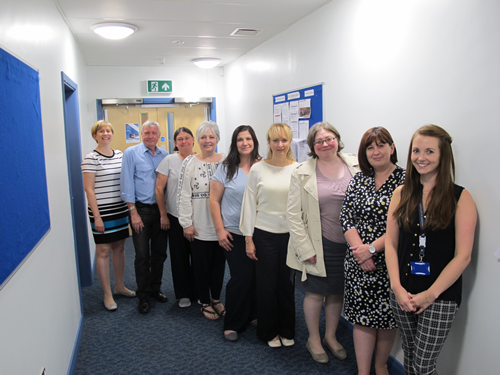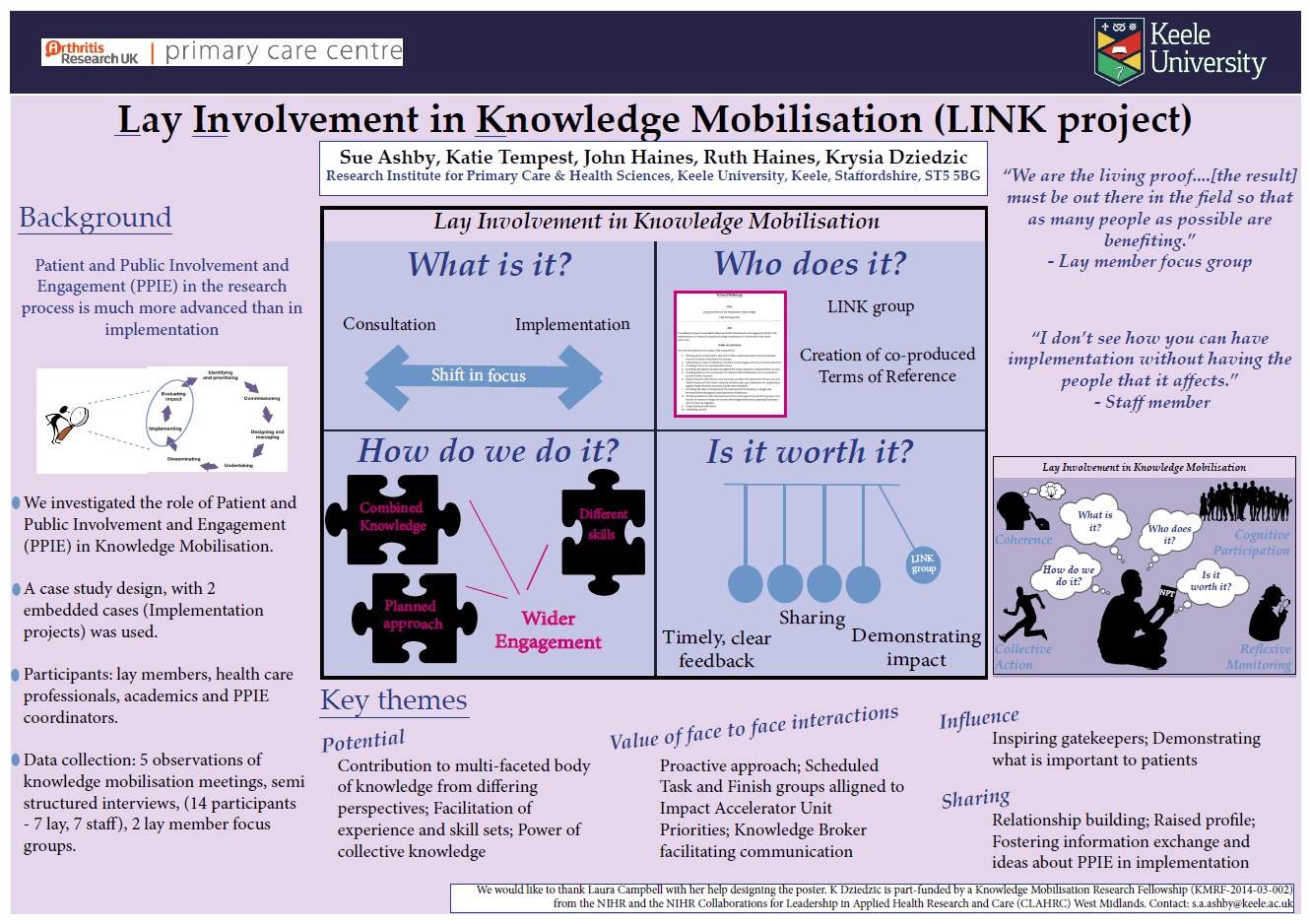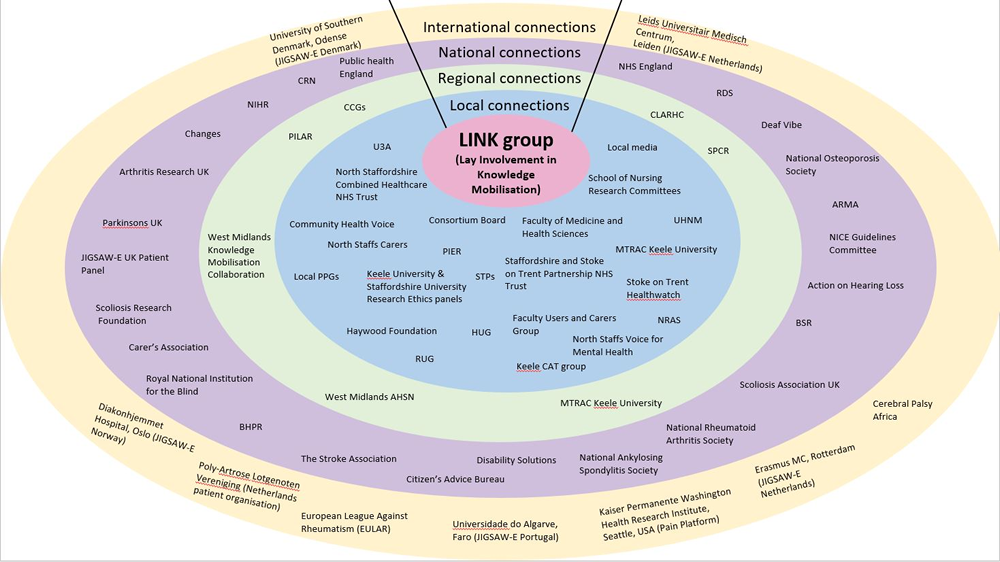Influencing the wider public
The LINK group (Lay Involvement in Knowledge Mobilisation) champion the patient voice in Impact Accelerator Unit projects, ensuring that the implementation of evidence based innovations into healthcare practice maintains a strong patient focus and maximises positive health benefits nationally and internationally. The LINK consists of members of the patient groups and organisations that the IAU is trying to reach. They bring a diverse range of real-world networks, skills and life experiences to support clinicians and academics in creating meaningful, positive and noticeable effects in patient care, through both strategic and practical work. This has included the co-production of patient facing materials, co-presenting at meetings, championing projects and connecting networks.

The LINK Working Party was established at Keele University in early 2016 to enable and support meaningful Patient and Public Involvement and Engagement (PPIE) in the implementation of research evidence into real life healthcare practice. The group aims to facilitate the movement, or ‘mobilisation,’ of knowledge and evidence based innovations into wider use, for the benefit of the wider community, nationally and internationally.
The School for Primary, Community and Social Care already has an existing Research User Group (RUG) which is made up of over 130 members, each with their own experiences of health conditions such as osteoarthritis, chronic pain, inflammatory arthritis, mental health illness and long term conditions. This “Expertise by Experience” helps to produce high quality, patient centred, relevant healthcare research. The LINK Working Party was established to take this research forward into the implementation phase.
The LINK provides a proactive forum for implementation issues in alignment with NIHR INVOLVE PPIE standards, promoting the patient narrative throughout the whole research journey and using networks, skills and experiences to support task and finish groups in the transfer of research findings into practice.

The LINK Working Party brings together members of the patient groups and organisations that it is trying to reach. It is made up of members of the RUG, along with patient representatives from ARC West Midlands (Applied Research Collaboration), members of local Patient and Public Involvement and Engagement groups (Haywood Users Group), an ethics specialist, people with links to charities and charitable organisations (e.g ARMA, Versus Arthritis) healthcare staff and carers.

The JIGSAW-E implementation project is based on a Keele research study which determined a model GP consultation for osteoarthritis and co-produced patient information (the osteoarthritis guidebook). The guidebook and model consultation were piloted in GP practices across the West Midlands and are now being rolled out to further practices in the UK, Denmark, the Netherlands, Portugal and Norway.
- Members of the RUG co-produced an osteoarthritis self-management Guidebook during the initial research study
- Tasked with answering the question how do we make the public aware that this resource is available, members of the LINK group have since designed an eye catching, patient friendly, informative poster to promote the Guidebook and the JIGSAW-E service in primary care. (Joint Pain poster for GP practices)Connections with local Patient Participation Groups (PPGs) were particularly useful in this piece of work. Along with accompanying leaflets, the poster and GP waiting room screens (Editable power point slides) are now in place in GP practices across the West Midlands.
- Members of the LINK have adapted the GP poster for pharmacies, (Joint Pain poster – Pharmacy version) which is now being used across the West Midlands in pharmacies supporting JISGAW
- Members of the LINK have joined the project’s international Community of Practice to share their own experiences of healthcare in the UK with other countries. They are Patient Champions who sit alongside Clinical Champions and members of the project team, tasked with championing the project and bringing their own skills, links and knowledge to do this.
You can see more about the Impact Accelerator Unit here: